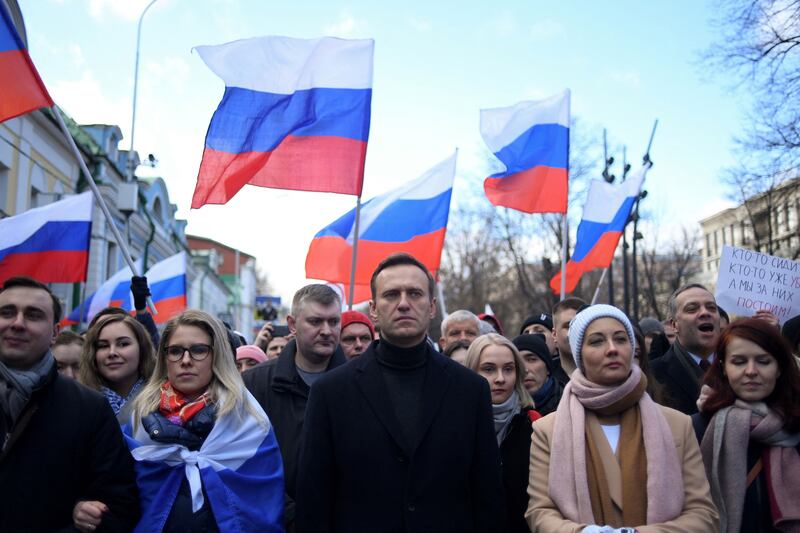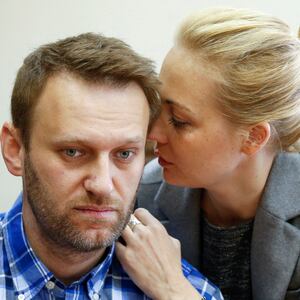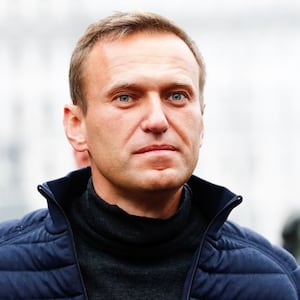On the heels of the death of Russia’s main opposition leader, Alexei Navalny, swirling questions remain as to who will now lead the Russian opposition.
His widow, Yulia Navalnaya, who had typically avoided the spotlight and interviews, has already come bursting onto the scene, announcing that she would continue Navalny’s fight.
“I will continue the work of Alexei Navalny,” she said in a video posted to social media. “And I call on you to stand beside me. Not only to share the grief and the endless pain that has engulfed us. I ask you to share the fury. The fury, the anger, the hatred toward those who have dared to destroy our future.”
Already, she is working on amplifying Navalny’s vision for Russia’s political future.
Speaking at the Munich Security Conference just hours after Moscow announced her husband’s death, Navalnaya mentioned that she had considered going to visit her children. Instead, however, she opted to deliver remarks on Navalny’s death, and call on Russians to continue working against Russian President Vladimir Putin.
“I thought, what would Alexei do in my place? And I am sure that he would be here, on this stage,” she said. “I want to call on the entire global community, on all the people in the world to come together so that we can defeat this evil, defeat this horrifying regime that is in power in Russia.”
Navalnaya has long played a central role behind the scenes for Navalny, advising him closely, according to Yevgenia Albats—a Russian journalist and friend of the late dissident—who fled Russia after facing persecution for her reporting on the war in Ukraine.
“She always was by his side,” Albats told The Daily Beast. “She definitely was his closest adviser and they discussed a lot together of his steps and responses and how he was going to present those.”
The speech shows a marked difference in how Navalnaya will likely be willing to approach the current political moment, said Albats, adding that she could be well-positioned to rally Russians around a common cause: Avenging Navalny’s death.
“Definitely when I listened to it. I was thinking that it’s the first time that Yulia gave a political speech. It wasn’t just a speech of a mourning widow. It was a political speech,” Albats, who is currently a research fellow at Harvard Kennedy School, told The Daily Beast. “It became clear that she is going to get into his shoes.”
“She has a very powerful motive to lead the opposition because for her it’s about revenge—for many of us it’s now about revenge. She definitely wants to see Putin and all those willing executioners who killed Navalny” to be held accountable.
A New World
Already, the Kremlin is reacting to Navalnaya’s effort to throw her hat in the ring. Kremlin propagandist Vladimir Solovyov on Tuesday threatened Navalnaya with the same treatment Navalny received. “The same fate awaits Navalnaya,” he said. “If she comes to Russia, she will go to prison.”
While Navalnaya seems ready to charge ahead with the Russian opposition movement, many in Russia acknowledge that Navalny can never truly be replaced, and that his death leaves a gaping hole for the opposition movement to try to fill.

Russian opposition leader Alexei Navalny, his wife Yulia Navalnaya, opposition politician Lyubov Sobol and other demonstrators march in memory of murdered Kremlin critic Boris Nemtsov in downtown Moscow.
Kirill Kudryavtsev/AFP via Getty Images“In terms of replacing Navalny as a leader, I just think it’s kind of impossible,” Maxim Alyukov, a research associate with the King’s College London Russia Institute, told The Daily Beast. “He was one of the most brilliant politicians in terms of coming up with alternative innovative political strategies.”
Many opposition figures live abroad or in exile, though many lack sweeping popularity like Navalny. Other allies of the dissident remain jailed, like Ilya Yashin, who promised to carry on Navalny’s fight.
“As long as my heart beats in my chest, I will fight tyranny. As long as I live, I will fear no evil,” Yashin said. “I understand my own risks. I’m behind bars, my life is in Putin’s hands, and it’s in danger. But I will continue to stick to my line.”
Yashin’s path may be an uphill battle simply because he is working from prison and may face harsh retribution for speaking out against Putin, warned Albats.
“It’s very hard to become a leader sitting in jail. The kind of stuff that Navalny did nobody could and nobody can,” Albats told The Daily Beast. “If he tries to come up with a different political statement out of jail, he’s going to experience extremely harsh punishments from the side of those criminals.”
Other anti-regime leaders’ names, of course, remain in the fray, including Mikhail Khodorkovsky, an oligarch and prominent exile opposition politician; Maxim Katz, a well-known YouTuber; or Leonid Volkov, a strategist and colleague of Navalny’s. Volkov vowed to carry on Navalny’s work in a social media post.
“From himself and from everyone around him, he demanded one thing: not to give up,” Volkov said. “This is what he wants from us now. His life’s work must win.”
The future of the Russian opposition may be less focused on one central figure and more decentralized and unified, moving forward, said Alyukov.
“I think it will necessarily be a more decentralized structure than it was, say, five years ago,” Alyukov said. “It’s very difficult to find those people who have these qualities who are basically ready to die and become a center of attention, like Navalny, and then end up in prison and die. Not everyone is ready to sacrifice.”
Khodorkovsky, too, predicted greater collective effort among opposition leaders moving forward.
“Our reaction to his murder must be to join forces, carry on his work together, and ensure that hope for a democratic Russia does not die with him.”








